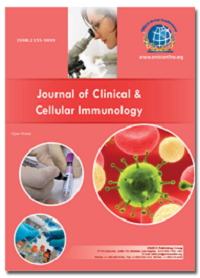
Autism’s Co-Occurring Conditions: Time to Act
The evidence is piling up on the severe burden of health problems that accompany autism spectrum disorder (ASD). These problems are often unrecognized and not addressed. According to a new study from scientists with the U.S. Centers for Disease Control & Prevention (CDC), “the high prevalence and diversity of co-occurring conditions/symptoms in ASD suggest the need for a comprehensive system of care for these children.”

Cannabis for Autism: Biological Clue to Effectiveness
Many parents are reporting success using cannabis for their child with autism. A new study by researchers at Stanford University gives a clue to why cannabis might be effective for the person with autism spectrum disorder (ASD). The study, “Plasma anandamide concentrations are lower in children with autism spectrum disorder,” found reduced amounts of a neuromodulator, anandamide (N-arachidonoylethanolamine or AEA), in the blood of 60 children with ASD compared to 56 neurotypical control children. The children were ages 3-12 years. The ASD group had a confirmed autism diagnosis. The typical controls had no history of neurodevelopmental or mental health problems.

Acetaminophen as a cause of the autism pandemic? It makes absolutely no sense … at first.
My research looks at what causes harmful inflammation in people in Western societies. The triggers of inflammation are recent developments in human history, appearing after the agricultural revolution only 10,000 years ago. Most did not appear until just a few decades ago, as we entered the post-industrial age. 1 My favorite example is the loss of biodiversity from the human body. Humans have always been bathed inside and out with bacteria, viruses, fungi, worms, and other organisms, but in recent decades our bodies’ ecosystems have become much less diverse, to our detriment.

Duke University Study Finds Helminths are Beneficial to the Gut Biome Promoting More Good Bacteria and Less Bad
Acting on this discovery could have a profound affect on human health. The idea that from the ecosystem of the human body is leading to inflammation and disease is gaining widespread acceptance. This loss of diversity, known as “biome depletion”, is caused by a variety of factors in modern society and has an effect on every aspect of our body’s development and function, including our brain’s development and function. Most attention among scientists and the media alike has focused on the microbiome, the microorganisms or germs in our biome. However, a substantial body of experimental evidence points toward the presence or absence of larger organisms, helminths or worms, as having a generally more global effect on the body’s function, including alteration in the microbiome.

Study Finds Autism-Mercury Link Through Elevated Antibodies to Critical Brain Proteins
A study published in the current issue of the Journal of Clinical & Cellular Immunology found indicators of autoimmunity to critical brain proteins associated with mercury exposure in children with autism. The authors, Gehan Ahmed Mostafa and Laila Yousef AL-Ayadhi at the Department of Pediatrics, Faculty of Medicine, Ain Shams University, in Cairo, Egypt and the Autism Research and Treatment Center in the Department of Physiology, Faculty of Medicine, at King Saud University in Riyadh, Saudi Arabia, respectively, hypothesize that mercury might play a causative role in some cases of autism through increased levels of antibodies to myelin basic protein, or MBP.

Worms and Germs: Why This University Researcher Believes that Understanding the Human Biome Can Help Our Kids
William Parker, Ph.D., an immunologist and associate professor at Duke University School of Medicine, spends his time studying the effects of worms—yes, worms—on rats’ and humans’ immune systems. His worms aren’t the brown kind that live in your garden, but special worms called helminths that might help our kids with autism.


